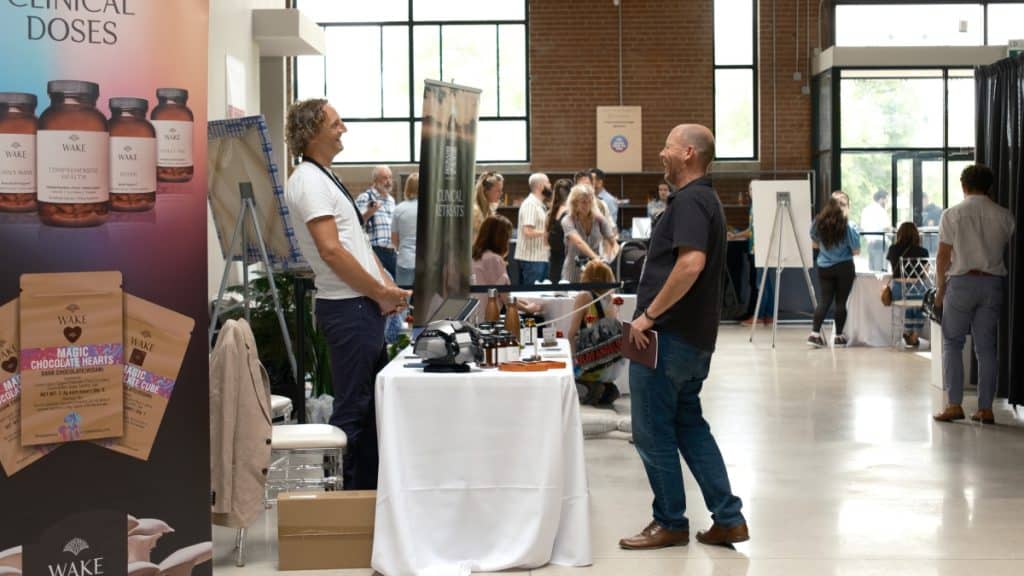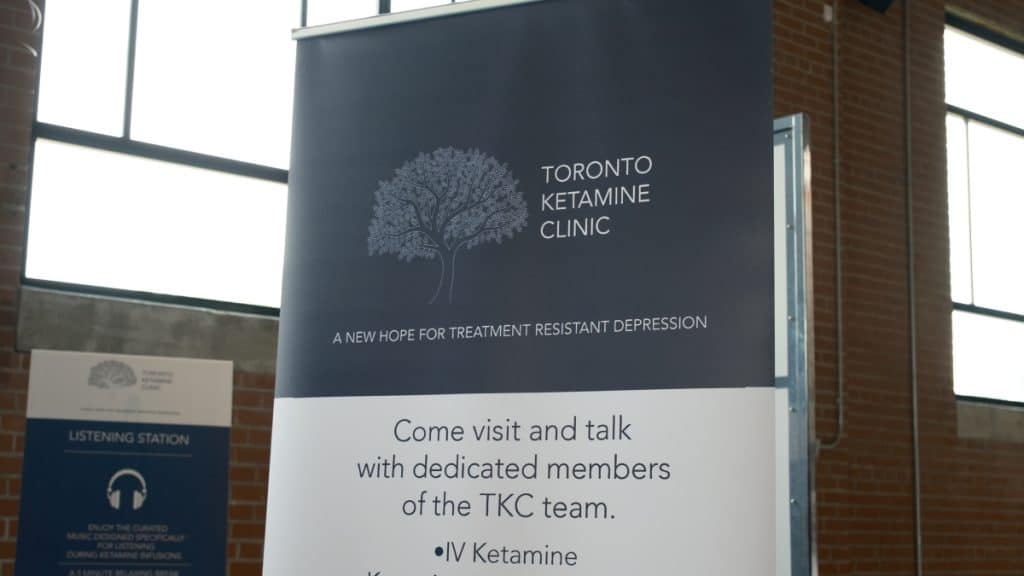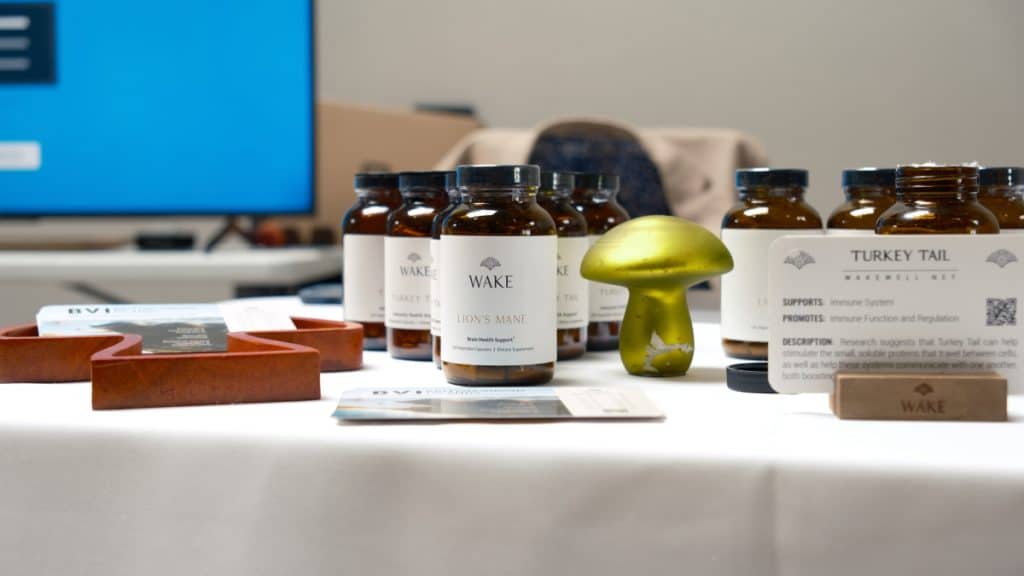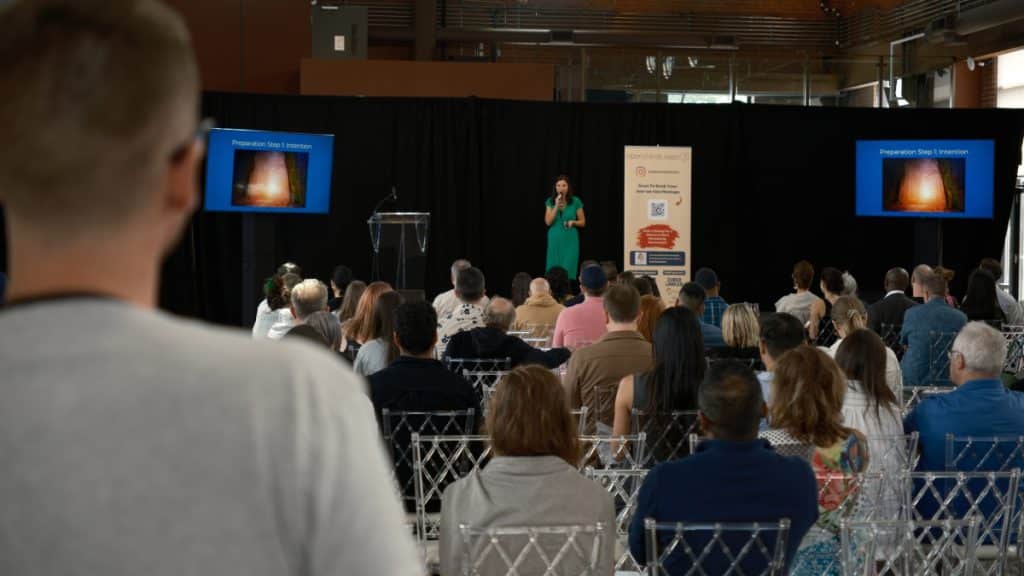While psychedelics have been around for quite a while now — with over 50 years of strong presence in the research field and years in practical medical applications — there’s still a certain stigma around the subject.
Treat depression with ketamine? Psilocybin-assisted retreats in Jamaica as a more effective way to combat stress? Indigenous plant ceremonies that help you overcome chronic anxiety? Among the population that doesn’t follow the trends, these approaches still might raise some eyebrows.
However, today that stigma might be slowly diluting, and rightfully so. The numbers, the science, and the success rate stand by these pioneering methods. Not just “in some distant future”, but now. And we can see it at Open:Minds Expo in Toronto.
Open:Minds
Open:Minds positions itself as the world’s first consumer expo for psychedelic therapy. For 2 days in the very beginning of June, dozens of entrepreneurs, practitioners and researchers gathered in Toronto’s The Symes hall.
We’ve decided to join in: after all, the psychedelic extraction industry is largely dependent on this field’s growth and development.
The Symes venue usually hosts large-scale weddings, business coaching sessions, and events like CurlyCon: nothing out of the ordinary. And even though a psychedelic expo might sound unusual for some, it blends in just right.
It is, indeed, an expo: business suits and t-shirts, booths and stalls, flyers, some equipment here and there, and lots, lots of panel discussions.
The three things that make it clearly different from an ordinary trade show at Metro Convention Centre are people, ideas, and the amount of logos that are, in one way or another, related to psychedelic mushrooms.
The People

 Open:Minds is not a “professionals for professionals” kind of show with networking at its heart. It’s “industry for the public” instead: a much more needed approach for this field.
Open:Minds is not a “professionals for professionals” kind of show with networking at its heart. It’s “industry for the public” instead: a much more needed approach for this field.
“We said “you know what? Where the science is real, there’s got to be a path forward to bring consumers to understand what this world is all about, how can they legally participate, and what can it alleviate.”
When we started, we understood how complex it is for the average person to get onto the Internet and read things, and learn. We’ve realized that they need to talk to the practitioners. So we’ve invited these practitioners to be here, to introduce what they do to the public.
It’s really important for us to educate the public: what this is all about, how it can help, and the fact that doing this recreationally is not a replacement for doing it the right way with a trained practitioner, having someone work as a therapist with you while you’re doing it. That’s where you get the real benefit”

 Participants here represent a variety of microiniches within the psychedelic-assisted treatment niche.
Participants here represent a variety of microiniches within the psychedelic-assisted treatment niche.
From TKC Toronto Ketamine Clinic we walked to TheraPsil, psilocybin therapy providers’ stall. Listened to a presentation on sex, love, and yoga with Dr. Cat Meyer from SexLoveYoga.com. Checked out Wake Network’s brain scanner that helps UFC athletes monitor their progress in treatment with pyshedelic fungi in Jamaica.
Researchers, advocates, founders, licensed psychologists, psychotherapists, advisors and visionaries. The common trait that was hard not to notice is that science and research seem to be ingrained in pretty much everyone’s background.
And just as many famous scientists that propelled the medical field forward in the past, many at Open:Minds started their journey by the most ethical and representative means of research: experimenting on themselves.
“I was a depression sufferer, years ago and had to go to the States to get this treatment, which did not exist here. So I was one of the people that had a hand in being the first clinic to open up in Toronto for I.V. ketamine.”
— Justin Davies, Founder and CEO of Toronto Ketamine Clinic
It’s more than a single story, though. It’s a pattern:
“I was helped by psilocybin, and my partner was also helped through her journey with cancer by psilocybin, as well as lion’s mane and turkey tail. So I really wanted to bring it to a lot of people, and that’s what took me down to Jamaica.”
— Nick Murray, co-founder and CEO of WAKE NETWORK
In fact, a common shared trait:
“I wanted to heal my own self, and along the path, I’ve discovered everything from yoga to trauma therapy, energetic psychology and psychedelics, how all of these can influence one another for an optimal healing.”
— Dr. Cat Meyer, PsyD, LMFT, Founder, SexLoveYoga.com.
The Ideas

 The idea of trying psychedelic therapy personally and succeeding before starting a company in this field highlights another common theme: it’s personal, not just business.
The idea of trying psychedelic therapy personally and succeeding before starting a company in this field highlights another common theme: it’s personal, not just business.
We didn’t hear a lot about revenues and ROI. No mentions of CAGR in the panel, no other cold, profit-oriented whatnots. Not even in the smoking area, where all the fun usually is. A skeptic would suggest that it’s just a typical business facade, but in this young industry, it appears to be not the case.
Sure, we’ve spoken to CIOs and regional development managers, PR people, B2B service providers, catering to the niche. It is, of course, about business, not just advocacy.
However, at the core of it, lies a simple premise: we want to bring the public the solutions it needs. And these solutions actually work.
“The research shows that for I.V. ketamine specifically, which is where I would say 95% of the research has been done on depression, that there’s a 70% response rate. When somebody has tried an antidepressant and it’s failed, their percentage for success goes down. To have something within this population to hit 70% response rate is really quite astounding.
The other thing, you know, that’s really of note is that ketamine works within a matter of hours and ok, two days. Traditional antidepressants usually take 4 to 6 weeks before you can tell whether they’re effective. The fact that it’s working in such a quick, amount of time for depression, for suicidality, that it’s bringing this relief that’s just really tremendously needed.”
— Justin Davies, Founder and CEO of Toronto Ketamine Clinic

 It’s not just about clinical research and data. For many present at Open:Minds, it’s proven by their own business experience. Something they work with and see every day.
It’s not just about clinical research and data. For many present at Open:Minds, it’s proven by their own business experience. Something they work with and see every day.
“We offer programs like microdosing for psychedelic integration, integration, drop in groups, in-person events, and so on. We’ve taken over 400 people through this program already. We’ve had groups with, you know, 20 year old young men with 82 year old women all in one group together. And the connection and the learning and the support they have is just incredible.”
— Dana Harvey, Facilitator & Head of Communications & Partnerships, Gathering Groups
Two of the speakers we’ve talked to mentioned that they expected Canada to be faster in accepting psychedelics. And almost everyone mentions some sort of reluctance that the society, the legal field, or the medical industry are still showing towards psychedelic-assisted treatment.
“I don’t think the medical community is ready for this treatment to be considered a first line treatment. It’s a new treatment. But, you know, the research has been done, and the research is very good and strong on ketamine for depression.”
— Justin Davies, Founder and CEO of Toronto Ketamine Clinic
Even though it might be not quite easy at the moment, the trend is definitely positive:
“The stigma is removing and lowering, but, we do seem to get the same questions over and over. Am I going to do something embarrassing during the journey? Am I going to remember the journey which everybody does, which is wonderful. Am I going to embarrass myself? We’ve heard it all, but we’ve had over 400 people through our retreats, and everybody’s had a really good experience.”
— Nick Murray, co-founder and CEO of WAKE NETWORK
And finally, the Future

 Despite the psychedelic wellness field being around for years now, at Open:Minds, we’ve met visionaries and innovators. The first generation of those who make the third wave happen. The fact that an expo like this is legally possible (and has no mass protests right outside the venue) is, in itself, proof of a positive trend.
Despite the psychedelic wellness field being around for years now, at Open:Minds, we’ve met visionaries and innovators. The first generation of those who make the third wave happen. The fact that an expo like this is legally possible (and has no mass protests right outside the venue) is, in itself, proof of a positive trend.
“I do see a mix of a clinic and a retreat location, and that being the future for the West. So when you go to a clinic that’s specializing in psychedelics, it wouldn’t be your traditional doctor’s office that’s kind of flat, you know, bland and boring. It’ll be very much plant focused. It’ll have, hopefully, an outdoor area, some nature.”
— Nick Murray, co-founder and CEO of WAKE NETWORK

 However, the final trump card for the psychedelic-assisted treatment is that it’s not just about psycedelics. It’s “assisted” for a reason.
However, the final trump card for the psychedelic-assisted treatment is that it’s not just about psycedelics. It’s “assisted” for a reason.
Be it a licensed anesthesiologist that helps their patients administer a therapeutic dose of IV ketamine or a glass of juice with dried Blue Meanies on a tropical beach during a retreat, psychedelics are merely tools that enable people with more natural means of overcoming mental health issues.
“We actually believe that the opposite of so many of the mental health issues and the many diseases in our community today is that lack of connection.”
— Dana Harvey, Facilitator & Head of Communications & Partnerships, Gathering Groups
Having spent the whole day with those who push the field forward, we see a bright tomorrow for psychedelics.
Only, of course, if the industry continues to keep people at its core.

